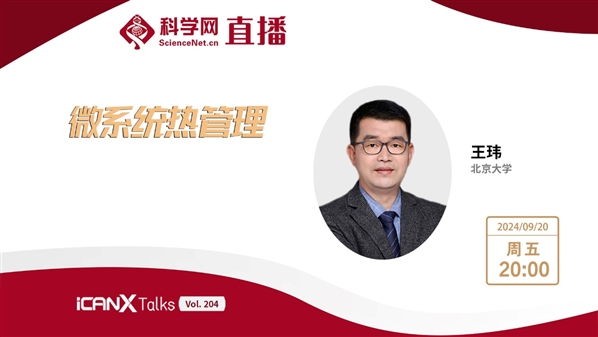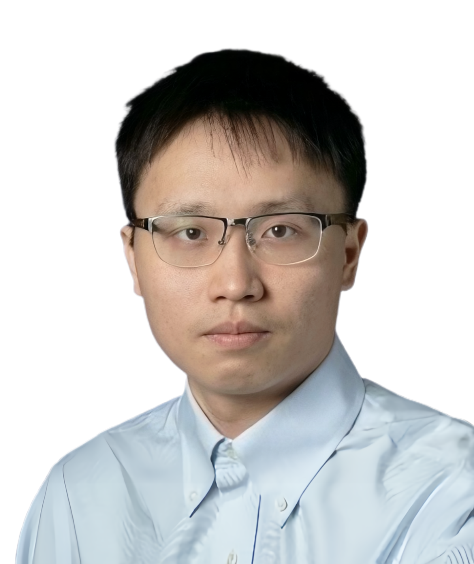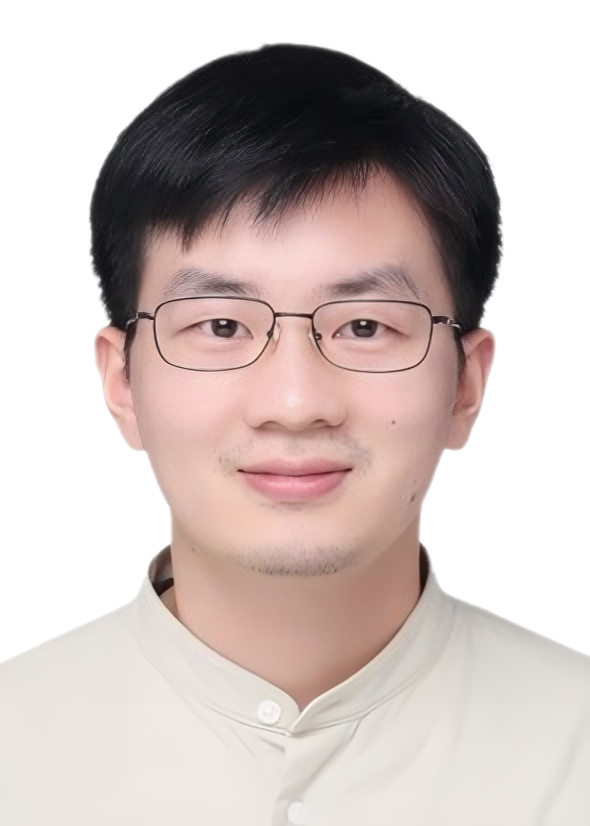
直播时间:2024年9月20日(周五)20:00-21:30
直播平台:

科学网APP
https://weibo.com/l/wblive/p/show/1022:2321325080680643297283
(科学网微博直播间链接)

科学网微博

科学网视频号
北京时间2024年9月20日晚八点,iCANX Talks 第204期邀请到了北京大学王玮教授作为主讲嘉宾,香港科技大学助理教授郑琪野、北京大学助理教授杨林也将进行分享!北京大学助理研究员教授张弛、北京科技大学教授邱琳担任研讨嘉宾,北京大学张海霞教授担任主持人。这将是一场汇聚顶尖学者的盛会,共同探讨前沿科技与学术挑战!更多精彩,敬请期待!
【嘉宾介绍】

Wei Wang
北京大学
Thermal Management for Microsystem
【Abstract】
With the rapid development of integrated circuit technology, especially the introduction of advanced packaging techniques such as 3D integration, chip integration density and power consumption continue to increase. At the same time, a large number of low thermal conductivity dielectric materials are widely used in chips and their packaging structures, making chip heat dissipation increasingly difficult. Thermal management has become a bottleneck issue that cannot be ignored in the field of microsystem. This presentation discusses the demand and development status of thermal management technology in advanced packaging, and reports the recent research achievements of the presenter’s lab in the field of thermal management for microsystem, such as embedded microfluidic cooling technology.
随着集成电路技术的快速发展,特别是3D集成等先进封装技术的引入,芯片集成密度和功耗不断增加。与此同时,大量的低导热介质材料被广泛应用于芯片及其封装结构中,使得芯片散热越来越困难。热管理已成为微系统领域不可忽视的瓶颈问题。报告讨论了先进封装中热管理技术的需求和发展现状,并介绍了报告人实验室在微系统热管理领域的最新研究成果,如基于等效热导率模型的快速热仿真算法、嵌入式微流体冷却技术。
【BIOGRAPHY】
Prof. Wei Wang is the deputy dean of School of Integrated Circuits, Peking University and the director of the National Key Laboratory of Science and Technology on Micro/ Nano Fabrication. He received his B.S. in Thermal engineering from University of Shanghai for Science and Technology (USST, 1999) and the Ph.D. in Thermal Engineering from Tsinghua University (2005). He was a Visiting Professor in UC Davis (with Prof. Tingrui Pan) from 2007-2008 and Caltech (with Prof. YC Tai) from 2014-2015. His research focus on Parylene MEMS, clinical micro/nanosystem, and thermal management of 3D microsystem. He has published over 200 peer-reviewed articles, over 50 presentations with over 15 invited presentations, and 50 patents pending or granted. He is the Associated Editor of Microfluidics and Nanofluidics, Microsystems & Nanoengineering, and has served/ is serving on organizing committees for several internationalconferences, including IEEE MEMS’2015 and ‘2016, Transducers’2019, and 2021 etc.
王玮, 2005年博士毕业于清华大学航天航空学院,师从过增元院士。长江学者特聘教授、国家卓越青年科学基金获得者,微米/纳米加工技术国家级科技创新团队学术带头人。2005年加入北京大学,现任北京大学集成电路学院副院长、微米纳米加工技术全国重点实验室主任。目前担任微米纳米技术学会副秘书长、国家集成电路标准委员会委员、特种元器件标准委员会委员(微系统专项组组长),Microfluidics and Nanofluidics副主编、Microsystems & Nanoengineering等期刊编委,IEEE MEMS、Transducers、ICEPT、CSTIC、EDTM等领域系列重要国际会议技术委员会委员。长期从事微米纳米加工技术,特别是基于硅通孔(TSV)的三维集成与芯粒集成前沿技术研究,以及微纳流控技术研究。发表领域重要期刊和国际会议论文170余篇,授权、申请发明专利及软件著作权50余项,包括美国授权专利2项;获辽宁省科技进步一等奖、中电科科技进步三等奖、日内瓦发明展特别嘉许金奖等奖励,受邀在包括IEEE Sensors等20余个国际会议上作邀请报告。

Qiye Zheng
香港科技大学
Novel nanoscale thermal metrologies for semiconductor microelectronics
【ABSTRACT】
Thermal management challenges in microelectronics and energy technologies necessitate advanced thermal metrologies and materials. On the one hand, as feature sizes shrink toward the nanoscale in current and emerging semiconductor devices, thermal bottlenecks have emerged as performance limitations due to the high, non-uniform power densities over the past decades. Nanoscale thermometry for temperature mapping is crucial to improve chip-level thermal design and study non-diffusive transport phenomena. For diverse energy technologies, on the other hand, rapid screening of material candidates demands high-throughput characterization.Firstly, I will present our development of a novel electron-beam (e-beam) Reflection Electron Elastic Energy Thermometry (REEET) to address the need for nanoscale thermometry. REEET leverages the Doppler broadening of quasi-elastically scattered electrons in reflection electron energy loss spectroscopy to quantify the mean atomic kinetic energy and thus the local phonon temperature within the 5 nm e-beam probe area. Our calibration experiments compared with first-principles modeling confirmed the physics of REEET, showing a relative temperature sensitivity of ~0.09%/K for light elements like carbon and silicon between 300-600 K. We used REEET for far-field temperature mapping of 300-400 nm nanostructured graphitic thin films and a 250-nm diameter multiwalled carbon nanotube under Joule heating. Local hotspots were visualized in-situ with 20-60 nm resolution and a temperature standard deviation of ~35 K. Suppressed in-plane/axial k’s were observed via numerical modeling, ascribed to size effects and interface scattering. REEET overcomes the optical diffraction-limits and scanning probe complexity to enable flexible characterization of nanoscale temperature fields without the sample thinning requirement in TEM.Secondly, I will introduce our development of high-throughput photothermal metrology for materials screening leveraging structured illumination with thermal imaging (SI-TI). Traditional contact thermal measurements have challenges with throughput and the lack of spatially resolvable property mapping, while laser methods require serial raster scanning to achieve property mapping and frequently need mirror smooth sample surfaces. In comparison, SI-TI method is demonstrated to (1) enable paralleled measurement of multiple regions and samples without raster scanning; (2) allow dynamic adjustment of the heating pattern in software to optimize the measurement sensitivity for anisotropic materials; and (3) tolerate rough (~3 μm) and scratched sample surfaces, via measurements of dense and porous materials such as mica and 3D printed thermoelectric thick films. This highlights SI-TI as a new avenue in adaptivity and throughput for thermal characterization of diverse materials.
微电子和能源技术领域的热管理挑战需要先进的热计量和材料。一方面,随着当前和新兴半导体器件特征大小的不断缩小到纳米尺寸,在过去几十年中,由于局部非均匀高功率密度产生的热瓶颈已经成为性能限制。新型非接触纳米测温技术的研究可以在改进芯片级热设计和研究非扩散传输现象方面起到关键作用。另一方面,为各种能源技术快速筛选材料候选人需要高通量表征。首先,我将介绍基于电子束反射电子弹性散射(REEET)的新型纳米测温技术。REEET利用在反射电子能量损失谱中的准弹性散射电子的多普勒宽度来定量平均原子动能和5nm电子束探针区域内的局部声子温度。我们进行的校准实验与第一原理计算的比较证实了REEET的机理,在300-600K之间,如碳和硅等轻元素的相对温度灵敏度约为0.09%/K。通过REEET对300-400nm的结构石墨薄膜和250nm直径多壁碳纳管在焦耳加热条件下的远场温度分布图,展示了REEET的高空间分辨率20-60nm和约35K的温度标准偏差。通过数值模拟验证了实验观测,将碳纳米材料中热导降低归因于尺寸效应和界面散射。REEET克服了光学衍射限制和扫描探针复杂性,能够更灵活地表征纳米尺寸的温度场,而无需TEM样品磨薄。其次,我将介绍我们开发的利用结构光照明与热成像(SI-TI)实现高通量光热计量的技术。传统的接触热测量存在通量低和缺乏空间分辨率性能等挑战,而激光方法需要逐点扫描来实现性能映射,且常需要镜面光滑的表面处理。SI-TI方法证明可以(1)实现多个区域和样本的并行测量,无需扫描;(2)通过软件动态调整加热图案来优化各向异性材料的测量灵敜度;(3)容忍较粗糙(约3um)和划伤样本表面,通过对密实和多孔材料例如闪石和3D打印热电厚膜的测量。这突出了SI-TI在灵活度和通量方面的新途径,用于各种材料的热特征表征。
【BIOGRAPHY】
Dr. Qiye Zheng is current an Assistant Professor of Mechanical and Aerospace Engineering at TheHong KongUniversity of Science and Technology. He worked at UC Berkeley and Lawrence Berkeley National Lab from 2019-2022 after obtaining his PhD in 2017 and a 1-year postdoc in Materials Science and Engineering from the University of Illinois at Urbana-Champaign. His current research interests include nanoscale heat transfer, non-invasive thermal wave characterization, switchable thermal materials, dynamic thermal insulation, and thermal metrology. He has published 32 papers in prestigious journals such as Science, Applied Physics Review, Advanced Functional Materials, and Applied Energy with 2200+ citations and a h-index of 18. He is the recipient of NSFC Excellent Young Scientists Fund (Overseas, 2022). He serves as an independent reviewer for 47 distinct journals including Physical Review Letter, Advanced Functional Materials, and Nano Letter, a Topic Editor for Frontiers in Mechanical Engineering, and a Topical Advisory Panel member of the journal Crystals. He also served as session chair and poster judge for various conferences.
郑琪野博士于2022年起任香港科技大学机械与航空航天系助理教授。2012年于北京大学物理学院取得理学学士学位,2017 年获得美国伊利诺伊大学香槟分校材料科学工程博士学位并进行了一年的博士后研究,师从美国科学院院院士David Cahill教授,加入港科大前任加州大学伯克利分校博士后研究员,合作导师是美国工程院院士Ravi Prasher教授和UC Berkeley机械系主任Chris Dames教授。长期从事传热表征测量和功能材料相关的研究,在新型热测量技术、材料表征、和传热仿真方面积累了丰富的经验,近几年以通讯、第一或共同第一作者在 Science, Applied Physics Review,InternationalJournal of Heat and Mass Transfer, Advanced Functional Materials等期刊发表学术论文,相关 SCI 文章32篇,美国专利一项, Web of Science 引用1800余次, h 因子20。在新型光学高通量热测量技术,电子束纳米测温技术以及热功能材料方面取得了一定成果。其研究受EurekAlert, Electronics Weekly, ScienceDaily, Physics World等媒体报道。目前担任美国ASME K9委员会成员,担任47种SCI 期刊审稿人,受邀为Physical Review Letter, Nano Letter, Advanced Functional Material ,Applied Energy等47种期刊审稿210余次,多次在中国和韩国进行受邀报告。

Lin Yang
北京大学
Cross-Scale Heat Dissipation Mechanisms in 3D Integrated Chips
【ABSTRACT】
As Moores Law advances to the nanometer scale, 3D integration technology has become critical for its continuation. However, the heat dissipation issues caused by high-density interconnect structures have emerged as a major challenge restricting the development of advanced chips. In this presentation, I will introduce our research on the thermal transport mechanisms in 3D integrated chips. The report covers three key areas: First, we have developed precise measurement techniques spanning the angstrom to micron scales, establishing a model that links thermal conductivity in silicon under strain gradients to local strain and atomic-scale phonon spectra, revealing the anomalous effects of non-uniform stress on thermal performance. Second, we have developed an ultra-high-precision thermal testing platform to study abnormal thermal conductivity phenomena in ultra-thin nanostructures. Finally, we investigated the impact of electron-phonon scattering on thermal conductivity in doped semiconductors by regulating carrier concentration through phase change, providing theoretical support for chip heat dissipation optimization.
随着摩尔定律推进至纳米节点,三维集成技术成为延续摩尔定律的关键。然而,高密度互连结构带来的散热问题,已成为限制先进芯片发展的主要挑战。在本报告中,我将介绍我们对三维集成芯片中热传输机制的研究。报告的主要内容包括三个方面:首先,我们研发了覆盖埃米至微米尺度的精密测量技术,建立应变梯度下硅材料导热性能与局域应变、原子尺度声子谱之间的关联模型,揭示非均匀应力对导热性能的异常影响。其次,我们开发了超高精度热测试平台,研究超薄纳米结构中的异常导热现象。最后,我们通过相变调控载流子浓度,研究掺杂半导体中电子-声子散射对导热的影响机制,为芯片散热优化提供理论支持。
【BIOGRAPHY】
Lin Yang is an Assistant Professor in the School of Engineering at Peking University. He received his bachelor’s degree in 2014 from Xian Jiaotong University (Qian Xuesen Class) and his Ph.D. in Mechanical Engineering from Vanderbilt University in 2019. From 2019 to 2022, he conducted postdoctoral research at Lawrence Berkeley National Laboratory, before joining the Department of Advanced Manufacturing and Robotics at Peking Universitys School of Engineering in 2022. He was selected for the 2021 National High-Level Overseas Young Talent Program. Dr. Yangs research focuses on micro- and nanoscale heat transfer, chip thermal management, functional thermal devices, high-temperature thermal energy storage, and phonon noise reduction in quantum computing. His work has significant implications for thermal management in 3D integrated chips, low-carbon energy, post-Moore era quantum chip thermal design, andnationaldefense. Over the past five years, he has published more than ten high-impact SCI papers. His research, as the first or corresponding author, has appeared in prestigious internationaljournals such as Nature, Nature Nanotechnology, Science Advances, Nature Communications, and Nano Letters. His work has been invited for presentation at numerous internationalacademic conferences, and his papers have been recognized as “2020 PCCP Hot Articles” and “2019 Nanoscale Hot Articles.”
杨林,北京大学工学院助理教授,于2014年在西安交通大学(钱学森班)获学士学位,2019年获美国范德堡大学机械工程专业博士学位,2019年至2022年在劳伦斯伯克利国家实验室进行博士后研究,于2022年加入北京大学工学院先进制造与机器人系。长期从事于微纳尺度传热,芯片散热,功能性热器件,高温热能存储和量子计算中声子噪音消除等方面的研究。取得的一系列成果对三维集成芯片热管理,低碳能源,后摩尔时代量子芯片热设计和国防等领域有重要意义。近五年来,发表高水平SCI论文十余篇,研究成果以第一作者或通讯作者发表在Nature,Nature Nanotechnology ,Science Advances,Nature Communications,Nano Letters等国际高水平期刊。相关研究成果多次在国际学术会议上以特邀形式报告,发表文章获得“2020 PCCP 年度热门文章精选”,“2019 Nanoscale 年度热门文章精选”。
特别声明:本文转载仅仅是出于传播信息的需要,并不意味着代表本网站观点或证实其内容的真实性;如其他媒体、网站或个人从本网站转载使用,须保留本网站注明的“来源”,并自负版权等法律责任;作者如果不希望被转载或者联系转载稿费等事宜,请与我们接洽。